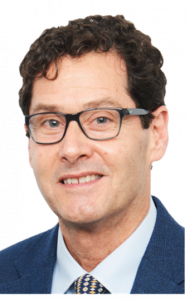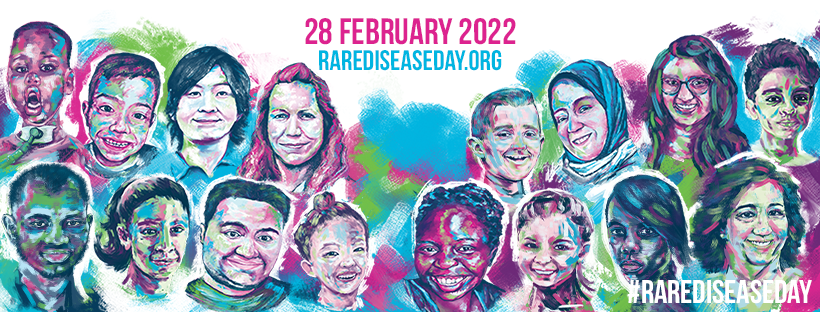
David Rowitch
Professor and Head of Paediatrics at the University of CambridgeDavid Rowitch, Professor and Head of Paediatrics at the University of Cambridge, discusses recent research findings showing high rates of rare genetic diseases in children admitted to intensive care units and specialist paediatric clinics. He explains how genomics and new ways of caring will help shape the future for these children.
Paediatrics is entering an exciting phase where we can have an even greater impact on the overall healthcare system. In the coming decades, we will help develop the whole genome neonatal screen, and stratified treatments (e.g., gene therapy, lifestyle, psychological interventions) with potential to mitigate onset or even prevent disease in children, young people and throughout their lives. Work in Cambridge has helped to embed a genomic medicine service for children nationally in the NHS with a remit to diagnose rare diseases including paediatric cancers.
Whole genome sequencing (WGS)
In Cambridge, we have a clear understanding of how research can help develop technology and improvements in care. University of Cambridge has a remarkable history of fundamental discoveries on DNA structure and how to conduct whole genome sequencing (WGS) at practical scale.
The genome is comprised of both exons (the genes themselves) and DNA in between these exons. Many of the top children’s hospitals in the US are using whole exome sequencing which only looks at part of the picture. However, the UK is looking to outpace approaches taken in other countries by investing in whole genome sequencing (WGS) as the direction of travel. WGS can be helpful because the kinds of genetic issues affecting children are quite diverse and, for certain type of conditions, we see 10-20% better diagnostic rates when we look at the entire genome rather than exome. Indeed, children with a serious disease could have any of 8,000 different so called ‘rare disease’ conditions, so we must look comprehensively by using a gene-agnostic approach and examining the entire genome.

Next Generation Children’s Project
Here in Cambridge, one question we were interested in was to what extent is a child being admitted to a neonatal or paediatric ICU driven by a genetic disease? This gave rise to the Next Generation Children’s Project, led by Professor Lucy Raymond, the largest study of its kind in the world to use whole genome sequencing for rapid diagnosis of children in intensive care and neurology clinic.
What we found was that in the neonatal ICU, one in four babies received a diagnosis for a genetic condition. In paediatric ICU, this was one in three children. However, the highest rates of diagnosis were in the neurology clinics where there may be children with seizures, those who may be floppy or who may have some abnormality in the way they walk. We found that in these cases, one in two children were diagnosed with a genetic condition. These results are not only found in the East of England or in the UK, but we are seeing comparable results from the United States where reports are showing this previously unsuspected high burden of genetic conditions in paediatrics. These results were unexpected – I have been a paediatrician for 35 years and we previously did not suspect how often genetic conditions are the cause for children who have serious medical issues that require them to come to hospital or be seen in specialty clinics.
These new findings have helped inform how NHS care is delivered nationally to drive towards early detection in diagnosis. A key message from our research was that we must make genomic testing tools available straight away when a baby or child comes to hospital, and not just in Cambridge but across the entire East of England region and the UK. In Cambridge, our genetics laboratory for the Eastern region, the Genomic Laboratory Hub, is leading nationally on the uptake of whole genome sequencing for diagnosis of paediatric cancers and so we are seeing how WGS can drastically improve care for children with both rare disease and cancer.

Future of genomically-informed individualised care:
Now that that genomic diagnosis is a practical reality, how can we use this information to help children’s physical and mental health? How can we improve their care? Can we use this new information to better tailor drug treatments or other interventions?
We are seeing how transformative advances and gene- and cell-based therapy approaches are being applied for a variety of disorders. For example, patients with the so-called ‘bubble boy’ disease – an immunodeficiency that means exposure to the environment would be fatal – can now be treated with gene therapy directed at stem cells to promote a stronger immune response. Similar work is being done in the field of sickle cell disease and with spinal muscular atrophy (SMA), all intended to improve quality of life. In my lab, we are investigating Pelizaeus-Merzbacher disease (PMD), a rare devastating neurological condition, using neural stem cell models and gene therapy approaches which may eventually translate to the clinic. Such new generation gene therapies for children are very promising as they work to rehabilitate and improve the function of cells the patient already has.
Cambridge Children’s Hospital: A whole new way of caring for children and young people:
Armed with this array of emerging technologies, Cambridge Children’s Hospital, a new hospital collaboration of NHS and University of Cambridge promises to bring together researchers and clinicians to understand the early origins of rare genetic diseases, shift from reactive care to prevention, and improve life trajectories of children and young people. Cambridge Children’s Hospital will be the first facility of its kind purpose-built for fully integrated physical and mental healthcare and research. It will have an embedded University of Cambridge institute for children’s health, setting the foundation for a massive expansion and acceleration in genomic medicine and research. This will enable us to diagnose faster and intervene sooner, to develop more personalised treatments, and ultimately to understand the origins of disease affecting physical and mental health. In doing so, we will also be strengthening young people’s resilience and improving their life trajectories and shifting medical practice from reactive care to prevention. With this new knowledge and discoveries on how we can look after the health and wellbeing of our children, we will be able to share ideas around the globe to make sure that children everywhere can benefit just as much as those here in East Midlands and East of England.
At this point in time, we are working towards submitting the second phase of the business case process to NHS England and NHS Improvement and the Department of Health.

To find out more:
To find out more about Cambridge Children’s Hospital, use this link: www.cambridgechildrens.org.uk
David Rowitch MD ScD FMedSci FRS is Professor of Paediatrics, University of Cambridge, and he sits on National Advisory Council for Child Health and Development (USA). Professor Rowitch obtained his MD from UCLA and his PhD (Biochemistry) from the University of Cambridge. His research has established genetic mechanisms that determine glial cell identity and heterogeneity during brain development and has provided insight into cerebral palsy and multiple sclerosis. His clinical research interests include genomic technologies to diagnose rare neurogenetic conditions and gene and cell-based therapies for leukodystrophies. He is recipient of numerous awards and was elected as a fellow of the Academy of Medical Sciences in 2018 and the Royal Society in 2021.

